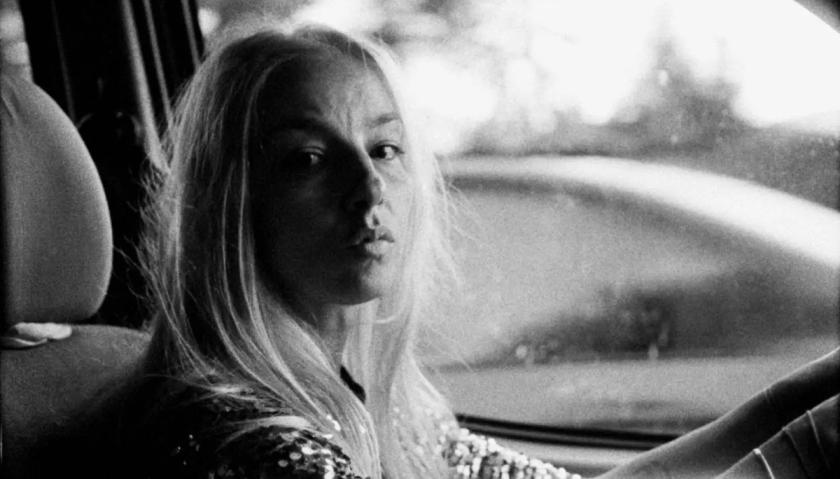Filmmakers of note make long movies for different reasons. Sometimes they may want the viewer to be so immersed in the movie they become “kidnapped” by it, to borrow an idea from Susan Sontag. (Epics by auteurs like Greece’s Theo Angelopoulis or Turkey’s Nuri Bilge Ceylan may be in this bracket.)
Sometimes – whisper it softly – directors such as Martin Scorsese may not always have the full measure of a story’s pacing. And sometimes filmmakers are just bonkers trash-art weirdos who want to annoy the hell out of everyone, audiences and movie financiers alike. Such appears to be the case with this two-and-three-quarter-hour offering by Romania’s Radu Jude, the unfeasibly long title of which alone seems to say f-you to the world and its spouse.
The rich buffet of sourness, disdain and abuse is too punk to be arthouse, and has its nose too much in the polluted open air to be underground. It’s a nihilist dissertation, but one with a very decided target – our modern mercantile and highly polarised world.
And it tells a relatively simple story, displayed mostly in grungy monochrome. Angela (Ilinca Manolache) is a production assistant who works endless hours doing research for a half-assed film and TV company. They’re making an industrial video for an exploitative Austrian furniture firm to instruct workers on protective gear, and Angela has to audition people who’ve suffered dreadful accidents on the job. They might get a small payout if they win a spot in the video to plug company propaganda.
Angela is a thirtysomething who dresses like a teenager in a spangly frock, and we track her forever caught in Bucharest’s hellish traffic, as she blows bubble gum, suffers insults from male motorists, and listens to metal, rap and Romanian turbo folk on the radio.
She’s also a wacko situationist social media poster who uploads invective to the web, disguising herself via a filter as a bearded baldie, like some warped performer from the Eurovision Song Contest. They’re obscene, misogynistic rants bigging up online haters such as Andrew Tate – attempts at satire, she claims, “like Charlie Hebdo”, and possibly a form of self-defence for her own deracinated soul.
These guerrilla posts are in garish colour, and the screen also pops with long, sedate colour outtakes from an actual 1981 Romanian movie about a woman taxi-driver. The conversation that Radu Jude has with this eerie distant past is hard to fathom, but at one point two actors from that archive effort turn up as characters in his present-day movie, one pledging fealty to Hungarian strongman Viktor Orbán.
If the wonderfully surly Manolache is half like a teenager, the movie is full of enough culture references to supply a dormitory of students in their first week at uni. Everyone from Goethe to David Hemmings, Oswald Spengler to Muriel Spark, gets drawn in, often in scornful contexts. A receptionist quotes Aristotle and a property developer has a fake copy of Marx.
This avalanche of name-checks points us towards Godard (whose own death is mocked), and at one point Angela chats on a sound stage with the pulp-monster moviemaker Uwe Boll (playing his pugilistic self), just as Sam Fuller turned up in Godard’s Pierrot le Fou. Jude’s film sets out to bore you and move you, sometimes both at once, as in a four-minute silent sequence of dozens of roadside crosses marking traffic deaths, one example of its toying with our tolerance for different types of cinema time.
After the purblind marketing boss of the furniture firm (the excellent Nina Hoss) flies in, the film concludes with a long, excruciating sequence of a work-accident victim getting taped – and mentally raped – by the video-makers, who end up mauling him out of all integrity while Angela does another social media post in the background.
Do Not Expect Too Much From the End of the World (there, I got it out) is a mad clowning film that eats itself, profane in all ways and in all directions. It’s a condemnation from the heart of Europe of our lives lived in the 21st century, via an assault on much of the culture that birthed it in the 20th.















Add comment